
News • AI-powered care operations
AI triage to cut NHS waiting lists by 70%
Sword Intelligence applies AI to triage and care coordination, reporting a 70% cut in musculoskeletal waiting lists and a fourfold boost in operational capacity.

Sword Intelligence applies AI to triage and care coordination, reporting a 70% cut in musculoskeletal waiting lists and a fourfold boost in operational capacity.

The Pharmaceutical Automation and Digitalisation Congress (AUTOMA+) 2026 takes place in Zurich on 16-17 November and reflects companies' approach to digital transformation as a business and operational priority.

An AI-assisted stethoscope could help doctors identify patients with valvular heart disease who may otherwise go undiagnosed. This could reduce hospital admissions and overall healthcare costs.

Computational pathology is becoming increasingly important in helping deliver precision medicine to a wider range of patients. Experts at the 37th European Congress of Pathology in Vienna discussed how algorithms can optimise laboratory workflows, generate stronger evidence for molecular tumour boards, and enhance clinical trial design.

The Kraft Center for Community Health has launched a new prize to recognise organisations using technology to transform healthcare access for underserved populations. At the 2025 World Medical Innovation Forum in Boston, ThriveLink – an AI-powered telephonic enrolment platform – was announced as the inaugural winner, receiving US $100,000 to further its mission of connecting families to vital…

☺️💊📞: Emojis are increasingly used in patient communication, a new study finds. This can help build trust and emphasize critical information, but may also lead to misunderstanding.

A first-time mother has about a 30% chance of complication in the second stage of labour, requiring assisted delivery or emergency C-section. A new device could help reduce birth trauma.

While digital health remains fragmented across much of Europe, one EU member state has already connected its system end to end – and continues to push the boundaries.

Breast cancer screening for women under 50 isn't cost-effective – yet 1 in 5 diagnoses occurs in this age group. A new study suggests a personalised approach that could change this equation.
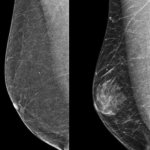
Breast imaging for male and transgender patients remains an under-researched field with significant gaps in guidelines and clinical practice. At the European Society of Breast Imaging (EUSOBI) annual scientific meeting, experts presented findings from a pan-European survey on male breast imaging and announced plans for a similar initiative focusing on transgender patients.

Facing a mental health crisis, more and more people turn to chatbots and AI characters. While they offer new possibilities, they also pose great risks, especially for vulnerable users, experts warn.

What have been the latest developments in digital R&D and lab automation, patient-centric design, digitalised manufacturing and supply chains? Highlighting the rise of a smart pharma, AUTOMA+ 2025 took place in Vösendorf, Austria on 24-25 November. The event was a dynamic interplay of technology, solutions and forward-thinking ideas.

Delivering a pathology service in resource-constrained locations and developing countries remains a challenge. Cost is a significant barrier, as is the availability of equipment, trained staff and technical and IT support can also hinder a desire from clinicians and pathologists to give their patients a high level of service to help their diagnosis and recovery. The subject was tackled in a…
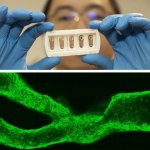
Researchers have developed a new 3D printing technique for blood vessels on glass. This could be a tool for studying stroke causes and testing patient-specific medications without animal testing.

Artificial intelligence (AI) is transforming healthcare, but it also introduces new cybersecurity risks that challenge IT teams. While AI streamlines diagnosis and workflow, cybercriminals are leveraging the same technology to infiltrate hospital systems. Experts addressed these emerging threats and strategies for resilience during the ‘Maximising What You Have for Cyber Resilience – Ask the…

A new study shows how AI could transform medical education, while calling for stronger collaboration across schools, hospitals, and regulators to make it safe, responsible, and effective.

People facing a mental health crisis increasingly turn to AI chatbots and wellness apps for emotional support. However, these tools alone do not have what it takes, according to a new health advisory.

Europe’s healthcare systems face growing pressure: fewer staff, higher infection-control demands, and increased documentation. Estonia is already built for this. With 99% of health data digital, digital trust is built into everyday healthcare – giving Estonian companies a strong foundation for efficient collaboration, fast traceability, and AI-supported operations.
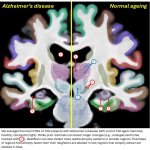
Researchers developed an AI-assisted brain atlas for visualization at microscopic detail using MRI scans. The tool could transform early detection of Alzheimer's and other neurological diseases.
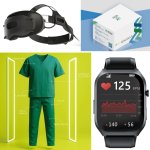
With Taipei City Government's support, six Taipei companies will showcase innovative biotech and medical device solutions at MEDICA 2025 (Nov 17–20, Düsseldorf), advancing healthcare with speed and precision.
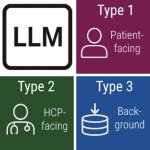
Underscoring the growing role of large language models (LLM) in cancer care, ESMO released the first structured set of recommendations to bring AI language models into oncology safely and effectively.
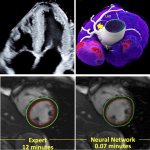
Cardiac imaging is evolving, and new techniques continue to uncover the secrets of the heart for cardiologists who know how to use them. At the ESC 2025 Congress in Madrid, four experts explored cutting-edge developments across different modalities. Ranging from AI-assisted ultrasound image acquisition and accelerated MRI protocols to advanced prognostic tools for CT and nuclear imaging, these…

Precision Oncology Ireland (POI), a €28M cancer research programme uniting universities, charities and industry to develop tailored diagnostic and therapeutic solutions, has now entered phase 2.

Stroke patients in four NHS hospitals are now receiving genetic tests that determine whether a commonly prescribed drug will work for them – a breakthrough that could transform treatment for millions. Digital approaches are spearheading a drive to help make genomic medicine part of everyday care. The role of digital tools was a central theme at the HETT (Healthcare Excellence Through…

Healthcare stands at a crossroads. With an impending shortage of 11 million healthcare workers by 2030 and millions dying annually from poor-quality care, the industry desperately needs transformation. Dr. Alex Ng from Tencent Healthcare explores how artificial intelligence is emerging as a powerful catalyst—not to replace human expertise, but to amplify it.

Children with asthma using at-home monitoring are around half as likely to visit the ED or be hospitalised, compared to those only receiving care from their medical team, new research shows.

Digital transformation, including AI, is key to improving healthcare services - but this may be easier said than done: A new UK study identifies hurdles for AI implementation in NHS hospitals.

The Pharmaceutical Automation and Digitalisation Congress (AUTOMA+) 2025 is a hub for decision-makers and digital innovators for exchanging insights on the integration of AI within pharma operations. To bring on the networking discussions, the Congress is held in Vösendorf, Austria on November 24-25.

New AI-powered solutions for cardiac ultrasound: Italian medical imaging specialist Esaote will be present at the European Society of Cardiology (ESC) Congress 2025, which starts today (29th August) in Madrid.
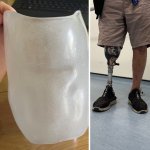
Researchers have developed a new, data-driven way of fitting prosthetic legs which could lead to better fitting prosthetics, in less time and at a lower cost.

AI-driven scribes that record patient visits and draft clinical notes for physician review may lead to significant reductions in physician burnout and improvements in well-being, a new study finds.

Digital technology is being harnessed to support the women’s health agenda in the UK and address issues of equity and access to healthcare through a range of innovative initiatives. Delegates to the HETT (Healthcare Excellence Through Technology) North conference in Manchester heard how digital technology is being leveraged to support women’s health Hubs – which tailor care to meet…

More clinically relevant tumors detected at an earlier stage and at lower costs: New research finds that AI can replace the second radiologist in the Dutch breast cancer screening program.

Remote monitoring via microfluidic platforms, AI-assisted sensor systems, and more: Attendees of the Labmed Forum at Medica saw impressive examples on how wearable technology is becoming a transformative force in laboratory medicine to improve real-time monitoring of patients, covering widespread conditions such as diabetes, asthma and COPD. With an emphasis on remote monitoring, devices are…
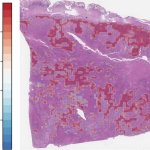
Microsatellite instability-high (MSI-H) tumors are associated with better clinical outcomes. A novel AI model for accurate MSI prediction could help battle gastric and colorectal cancers.

Laboratories across Europe are embracing sustainability through paperless workflows and automation. In this guest article, Gavin Hirst, Clinical Flow Cytometry Account Manager at Beckman Coulter Life Sciences, shares his thoughts on how digital transformation and eco-friendly practices not only advance climate goals but enhance efficiency, allowing scientists to focus on critical research rather…

RadNet's DeepHealth unit has completed its acquisition of iCAD, adding established AI breast cancer detection capabilities to its diagnostic platform.

From identifying under-utilized rooms to tracking spare mobile equipment like wheelchairs, spatial awareness technology is evolving to improve day-to-day operations on healthcare sites. The technology, which is already being deployed in airports, universities and industrial premises, is now seeing growing applications within hospitals. At the HETT (Healthcare Excellence Through Technology) North…

Medical Taiwan has long been a showcase for cutting-edge healthcare solutions, but this year marked a pivotal moment. Visitors of the latest edition of the medical, health and care expo in Taipei witnessed a particularly noticeable step forward: the definitive transition of medical AI from promising research to actual clinical practice. Organized by the Taiwan External Trade Development Council…

Too many medicines, too many hospital visits: Inappropriate polypharmacy is a major driver of emergency hospital admissions among adults aged 65 and over, according to a new study.

More consistent TIL assessments, more accurate patients' prognoses: New research shows how AI sharpens pathologists' interpretation of tissue samples for malignant melanoma.
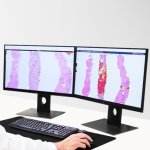
Digital pathology software company Fujifilm Healthcare Europe and Ibex Medical Analytics, specializing in AI-powered cancer diagnostics, announce a formal partnership to support efficient and accurate cancer diagnosis.

A virtual medical receptionist named “Cassie,” developed through research at Texas A&M University, is designed to transform the way patients interact with health care providers.

Machine learning (ML) for personalised care, large language models for empathy training of cardiologists, wearable sensor data for better screening, and more: Digital technologies hold great potential to improve diagnosis and treatment of patients with atrial fibrillation (AF). At the ESC 2024 cardiology congress in London, four experts explored the benefits of new solutions and pointed out…

Survival rates for pancreatic cancer rise drastically the earlier it is detected, but early-stage tumors are notoriously difficult to spot. A new AI-powered diagnostic system is set to improve this.

Creating cardiac ‘digital twins’ at a large scale, researchers hope to gather new insights into heart health. This includes effects of age, sex, and lifestyle factors on heart disease risk.

AI has the power to transform healthcare, but trust gaps among clinicians and patients threaten to slow adoption and impact, the 10th annual Future Health Index (FHI) report reveals.

Researchers used state-of-the-art 3D bioprinting to replicate the complex structure and environment of spinal discs. Their insights hold promise for understanding back pain and disc degeneration.

To lower the incidence of spine issues, bus stops across Croatia have been transformed to let people check their posture. The goal is to raise awareness and combat reluctance to see a physiotherapist.

The evolving role of AI tools in digital pathology was explored at an open discussion during the annual Digital Pathology and AI Congress in London with a high-level panel of practitioners looking at current and future technology options. The panel of pathologists, scientists and academics from Europe and the USA assessed the tools they currently use and are available to them, and those they…

While the Medical Device Regulation was designed to enhance safety and quality, its complexity and certification costs threaten the availability of vital devices. Cardiologists urge for revision.

A new study highlights the potential of a gamified mobile health app designed to help people with Multiple Sclerosis manage fatigue, one of the most common and debilitating symptoms of the disease.

A novel sensor placed on a patient’s head registers nanometric expansions of the skull in each cardiac cycle in real time to measure intracranial pressure more accurately and non-invasively.

The work of a nurse is becoming increasingly digital. A new study shows that nurses need to expand their professional competencies beyond their traditional skills to adapt to these changes.

Around one third of people with cardiovascular disease (CVD) also have mild cognitive impairment (MCI), yet the condition is often undiagnosed. A new project aims to untangle this MCI-CVD connection.

The countdown has begun for Medical Japan 2025 Osaka, Western Japan’s leading medical and healthcare trade show, taking place from March 5-7, 2025, at INTEX Osaka, where industry professionals, thought leaders, and innovators will gather to showcase cutting-edge technologies, foster collaboration, and drive advancements in medical, elderly care, pharmacy, and healthcare.

Medical Taiwan 2025, organized by TAITRA, will take place from June 5 to 7 at the Taipei Nangang Exhibition Center (TaiNEX 2). As a leading event in Asia’s medical and healthcare sectors, the exhibition’s theme, “Innovating Wellness,” will highlight groundbreaking solutions in medical technology and healthcare.
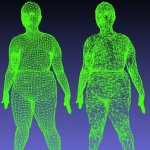
Using 3D imaging and deep learning AI, researchers have developed a new way to accurately assess body fat and muscle distribution, which are crucial for understanding health risks.

New AI-enabled systems, intelligent software, and imaging cloud services for improved radiology workflows: Royal Philips announces its solutions that will be showcased at ECR 2025 in Vienna.

AI-supported screening for breast cancer can detect more cancer cases compared with traditional screening, and find more invasive cancers at an early stage, results from the MASAI trial indicate.
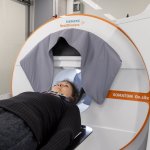
Mobile stroke units can greatly reduce time-to-treatment. At this year's International Stroke Conference, Siemens Healthineers is showcasing its new mobile solution to support stroke diagnosis.

Point-of-care diagnostics based on a combination of mobile-sized scanners and artificial intelligence (AI) are helping save the lives of women in low-resource settings. The AI technique is being applied in Kenya and Tanzania to deliver screening for cervical cancer – now the leading cause of cancer-related deaths in women in that region and a bigger cause of death than childbirth.

Researchers have clinically validated a previously developed urine test for prostate cancer screening, which can potentially bypass invasive procedures among men who are unlikely to benefit.

The WHO lists vaccine hesitancy as a major threat to global health, but what exactly is it, and how can it be addressed? New research into these questions could open up ways to approach this issue.

Better protection against cybercrime, more efficient threat deterrence: The European Commission has presented an EU action plan to bolster the cybersecurity of hospitals and healthcare providers.

A new study measured how well breast cancer patients’ tumour ‘explants’ respond to chemotherapy or HER2 antibody therapy in the laboratory. This could help improve clinical outcomes.

"This is a pivotal moment for European healthcare education," says project leader Minna Isomursu about the start of SUSA, a collaboration to advance sustainable practices in healthcare.

Complex diseases could require complex biomarkers for accurate diagnosis in the years ahead, according to a leading pathologist. In a keynote address to the 36th European Congress of Pathology in Florence, Italy, Professor Manuel Salto-Tellez highlighted this as one of the major future challenges for the discipline. However, he also believes pathologists will sit at the core of modern medicine.
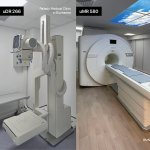
United Imaging announces four installations of their diagnostic imaging systems at three healthcare facilities in Romania. Working closely with distributor Tehnoplus Medical, the company hopes to increase diagnostic accuracy and support better treatment outcomes.

Research offers new insights into harnessing the immune system to combat ovarian cancer. The findings could lead to personalized therapies that target the right patients at the right time.

Large language models (LLM) show promise in detecting hospital patients at risk of committing suicide. This could help warn medical staff in time while maintaining the patients' privacy.

To advance the transition of AI from research to clinical application, Nvidia announced that Siemens Healthineers has adopted MONAI, an open-source medical imaging framework.

In the world of theatre, the ‘deus ex machina’, the god from the machine, is a dramaturgical trick to resolve seemingly unsolvable conflicts. Can artificial intelligence (AI) also be such a universal problem solver for internal medicine? At the Annual Congress of the German Society of Internal Medicine (DGIM), Dr Isabella Wiest explored the potential – and limitations – of AI helpers.

Large language models (LLMs) have potential in healthcare settings to help support both patients and clinicians. Cardiologist Dr Robert van der Boon believes they could have several applications, including patient communication and education, clinical decision support and administrative tasks. Delegates to ESC 2024 in London heard roles explored for LLMs in areas of clinical decision-making,…
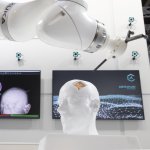
This week, the Medica and Compamed 2024 trade fairs offer an enormous variety of innovations and exciting programme formats with a host of highlights, innovations and top-class speakers.

Skills shortages and digitalization, trends in cardiology and oncology, future prospects in laboratory medicine, and healthy aging – these pressing topics are at the forefront of discussions at this year’s Medica Labmed Forum.
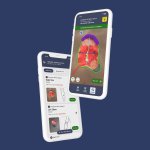
Swift Medical, a pioneer in digital wound care, has unveiled its new Skin & Wound 2 platform.

How can innovations help to master challenges and demands in healthcare? This central question will be addressed at the Medica Health IT Forum, an established part of the programme at the trade fair.

UK scientists are harnessing the power of AI to assess the antimicrobial resistance of patients in intensive care units (ICUs) and identify sepsis-causing bloodstream infections.

Artificial Intelligence (AI) remains a divisive topic within the discipline of pathology with a range of opinions over its current value and applicability in clinical settings. While most experts agree that the technology will not replace pathologists, it might still spell bad news for those who do not embrace AI in their daily practice. On the other hand, reservations persist about whether…
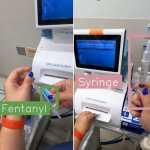
A newly-developed wearable camera system is designed to detect potential errors in medication delivery by identifying contents of vials and syringes with the help of deep-learning AI.

Minimally invasive surgical interventions, innovative imaging and the use of AI: At the upcoming EUSOBI congress in Lisbon, experts present and discuss the latest advances in breast imaging. We spoke with Tanja Brycker from Hologic ahead of the event about new trends in women’s health, the company’s investment in innovation and education, and what the future of mammography looks like with the…
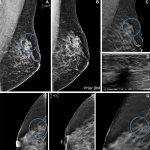
Evidence of the superiority of tomosynthesis for breast cancer detection is stacking up, with new results from a 10-year study further demonstrating the 3D imaging technique's benefits.

Early detection and management of asthma and COPD is critical. US researchers have developed a deep learning model paired with a wearable sensor patch to automatically detect wheezing sounds.

An AI-enabled digital stethoscope could help doctors identify twice as many cases of heart failure during pregnancy compared to regular obstetric care and screening, acording to a new study.
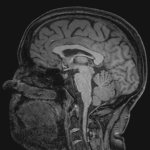
With enough medical training data, AI can predict health conditions with astounding accuracy. Now, researchers want to use brain scans of the entire Scottish population to have an algorithm early detect dementia.

Managing Directors and C-level executives from hospitals, clinics, and healthcare facilities gather in Berlin to discuss the latest advances and strategies for the digitalisation of healthcare.
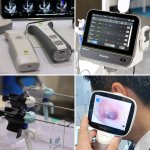
Handheld point-of-care diagnostics, magnetic endoscopy, AI-enhanced robotic surgery, smart patient information management, wireless minimally invasive surgery systems, and much more: At the Medical Taiwan Health & Care Expo in Taipei this summer, visitors had the opportunity to see innovative medical products and solutions across a wide range of specialties. We took a closer look at selected…
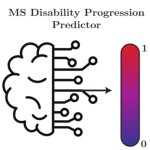
Can an AI predict the progression of multiple sclerosis in a patient over the subsequent months and years? Researchers in Belgium used machine learning to do just that – with promising results.

To address the increasing stress and burnout rates among healthcare professionals, Amsterdam UMC will lead a European consortium in search of the best solutions.

AI models perform increasingly well in answering medical questions. However, when it comes to explaining these answers, shortcomings become apparent, a new study shows.
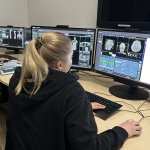
As opportunities for teleoperations rapidly expand within radiology, the concept is being deployed across an array of modalities to deliver more efficient healthcare. A range of speakers covered the topic of ‘Teleoperations in radiology’ at ECR2024, discussing its benefits in applications in MRI, ultrasound, during the social restrictions of the Covid-19 pandemic and military use. However,…

New research shows that the AI large language model ChatGPT can be tailored to provide accurate responses to questions about digital pathology and compile detailed results.

As demand for innovative healthcare solutions is at an all-time high, Medical Taiwan once again attracted a record number of visitors for its 2024 edition. The show’s organizer, the Taiwan External Trade Development Council (TAITRA), proudly reported an increase in attendance by 10% compared with the previous year. During the three-day event in Taipei, the audience was treated to a wide range…

Ductal Carcinoma in Situ (DCIS) often develop into more invasive forms of breast cancer. To predict which DCIS patients are likely to be affected, researchers have developed an analytic AI-based tool.

Finnish researchers found that using a mobile application based on cognitive behavioral therapy can significantly boost success rates of people attempting to stop smoking.

Although the Covid-19 pandemic is behind us, healthcare facilities continue to experience workflow challenges and resource constraints impacting women’s health and a patient’s ability to receive a timely diagnosis. Clinical specialties like breast radiology and cytology are especially susceptible to these issues and continue to experience backlogs, which impact their ability to deliver timely…
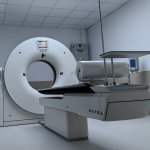
United Imaging announces that it has provided the Unicamed Hospital in Gjilan, Kosovo, with two state-of-the-art systems – the uCT 528 80-slice CT scanner and the uDR 266i digital radiography system.

Digital twin technology can transform clinical practice by aiding patient-specific prediction and supporting personalized treatment models. Expert speakers at an ECR 2024 session in Vienna focussed on how radiology will play a leading role in the advance through data acquisition via a range of imaging modalities.

For many, the term “metaverse” evokes images of VR headsets and the rebranded company behind Facebook – but can the digital parallel universe provide actual benefits for healthcare? Dr Anke Diehl has studied the technology intensively and recognises significant potential for medical applications. However, the expert for digital transformation at Essen University Medicine, Germany, cautions…

Autonomous robotic ultrasound systems could perform routine examinations and support doctors in the OR. New research shows that these systems can make everyday life easier for medical professionals.

Scientists show that health registry data can be used to predict individual risks for the 20 most common cancer types. This could help to identify high-risk groups and enrol them for screenings.

TikTok has become a go-to platform for young people seeking answers – including health information. But how accurate are the medical ‘Toks’? A new study analyzed the quality of the content.

Coronary artery disease causes more than 1.8 million heart attacks each year in Europe. In most cases, rehabilitation helps the patients to return to their everyday life. But what happens once the patients have left the rehab clinic?

Generalist Medical Artificial Intelligence (GMAI) models pose a significant challenge to current regulatory frameworks. Experts discuss how regulation of these models could work in the future.

Matching the right donor heart to the right recipient at the right time is a complex task. Now, experts point out how AI can provide unbiased decision-support for transplantation process.

Large language models like ChatGPT have become a go-to point for health information. However, a new study uncovers a vital weakness: The AI gets confused when faced with actual scientific evidence.

Some year in this decade, AI tools will become ubiquitous within clinical laboratories. AI has the potential to increase the accuracy of laboratory testing and improve the quality and efficiency of operations and service of testing labs.

Awareness of the importance of women’s health is on the rise, but many challenges remain: At ECR 2024 in Vienna, we spoke with Hologic about their continued evaluation of healthcare efforts for women. At the congress, the company also shared how AI could be used to mitigate the effects of medical staff shortage.

Medical Taiwan, the premier international expo for medical, health, and care industries organized by TAITRA, is scheduled to be held at Taipei Nangang Exhibition Center Hall 2 (TaiNex2) from June 20th to 22nd, 2024.

Why are we doing what we are doing to stop surgical infections? A new research review in the run-up to the ECCMID congress 2024 will look at improving preventive measures.

In a new article, digital health experts discuss how medical data from citizens could be used for research in the future while respecting personal rights.
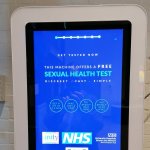
Vending machines dispensing self-test kits for sexually transmitted infections (STIs) have proven to be an effective and widely accepted means of reaching individuals who rarely or never get tested.

AI technology holds promise for personalised cancer therapies. However, rigid and slow approval requirements impede its introduction, say experts – and point out how this might be changed.

Pregnancy prevention apps, fertility-tracking wearables and more: Digital tools have expanded the range of contraceptive methods – but are rarely discussed at the GP's office, a new study shows.

Digital pathology brings benefits for sample management and optimisation, lets pathologists work on samples remotely: The UK Government has now approved the use of the technique for cancer samples.

A team comprising obstetricians, gynecologists, pediatricians, and biomedical engineers has found the key determinants for digital health solutions that support women from pre- to post-pregnancy.

Researchers have developed software able to disguise sensitive data in health care applications. This protects privacy while making datasets available for development of better treatments.

If healthcare professionals could get support making fast-paced, life-critical decisions from an AI tool, more lives could be saved, according to new research results from Sweden.

The Automa+ 2023 congress has brought fascinating insights into the pharmaceutical landscape. This article distills highlights from the congress, illuminating the paradigm-shifting strides that are set to propel the pharmaceutical industry into a future characterized by interconnected, empathetic, and forward-thinking practices.
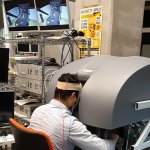
Operating a surgical robot is complicated, but now, researchers may have found a surprising way to shorten the learning process: with electricity applied to the head.

AI plays an increasingly important role in medicine – and this should also be reflected in medical curricula. New work from an international team suggests how this could be done.

While having more centers adopt digital breast tomosynthesis (DBT) for breast cancer screenings into their practice is a positive change, it also presents some challenges for radiologists—particularly the increased number of images for radiologists to review. This challenge has paved the way for AI to offer innovative workflow solutions for radiologists that do not sacrifice accuracy.

When a person has a cardiac arrest, using an automated external defibrillators (AED) can be life-saving. New research shows that AED delivery via drone is often quicker than an ambulance.

Faster, more accurate and cost-effective testing: Experts outline the beginnings and evolution of “lab-on-a-chip” technology, and its benefits for advanced and next-gen operational platforms.

The field of lab-on-a-chip needs to meet important challenges around sustainability. This includes not only the development of smart analytical systems that are able to sense the changes that are occurring within the environment but also, more generally, the mitigation of single-use plastics in analysis and the use of low-power, recyclable microsystem technologies.

The world's leading medical trade fair MEDICA 2023 starts on Monday in Düsseldorf with more than 5,300 exhibiting companies from almost 70 nations and the kick-off event for the accompanying 46th German Hospital Day, which will be attended by Federal Health Minister Karl Lauterbach (via video link) and NRW Health Minister Karl-Josef Laumann. COMPAMED 2023 will take place parallel to MEDICA. As…

Ultrasound technology now plays a vital role in clinical diagnosis and management. Significant advances in point-of-care ultrasound (POCUS) have made it a versatile tool for assessment, diagnosis, and follow-up across various fields. New developments continue to expand its applications, improving patient care and outcomes.

The Wallonia Export & Investment Agency welcomes the entire spectrum of the MedTech Industry on the Belgium Pavilion at Medica 2023 (Nov 13-16).

Machine learning and AI are playing an increasingly important role in medicine and healthcare, and not just since ChatGPT. This is especially true in data-intensive specialties such as radiology, pathology or intensive care. The quality of diagnostics and decision-making via AI, however, does not only depend on a sophisticated algorithm but – crucially – on the quality of the training data.

MEDICA trade fair (Nov 13-16, Düsseldorf) is a major event for start-ups entering the health sector. Hundreds of young developers seek business contacts for cooperation concerning funding, production, approval, marketing or sales of their products.

A new research collaboration aims to develop a forward-looking AI application to detect gender-specific symptoms earlier and further reduce mortality from heart disease, especially among women.

A team at the University of Bristol has developed a robot manipulator that could carry out clinical breast examinations. The developers hope the device will revolutionise breast health monitoring.

Modern cancer therapies are tough on the tumours, but often, also on the heart of the patients. The “CARDIOCARE” project aims to reduce the cardiac burden of anti-cancer therapies through more patient-tailored treatment approaches. At the ESC cardiology congress, Professor Katerina Naka from the project’s consortium explained why older patients are at the highest risk of cardiotoxic…
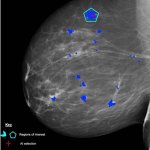
Mammographic screening is used to detect breast cancer, but is prone to false findings. Could an AI reader help improve this? UK researchers compared the performance of man and machine.

Can per- and polyfluoroalkyl substances (PFAS) increase the risk of breast cancer? A new study by US researchers examines the effects of the so-called “forever chemicals”.
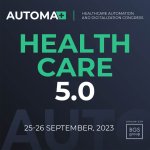
Machines are getting smarter every day, and companies across the world are discovering new ways in which they can use AI to significantly enhance engagement and customer experience. That is why decision-makers from pharmaceutical companies, hospitals and healthcare providers gather to network and discuss the latest innovations, as well as the potential for both AI and robotics, at Healthcare…

With the recent recommendation changes from the European Council in 2022, how radiologists screen for breast cancer is changing. Mammography has long been an essential technology in screening for breast cancer, and in the recommendations the Council formally recognized the advantages of digital breast tomosynthesis (DBT). This landmark acknowledges the research on and benefits of DBT, advocating…

Combining ultrasound and MRI technology can help detect prostate cancer at an earlier stage and potentially save lives, according to new University of Dundee research.
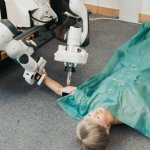
New robotics technology that can provide remote medical treatment to casualties in high-risk emergency environments, has been developed by researchers at the University of Sheffield.

With the introduction of digital pathology, the University of Queensland and Sullivan Nicolaides Pathology aim to provide significantly improved tests in terms of cost, quality and speed.
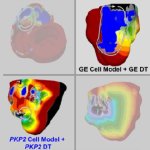
Scientists have developed a tool to create a digital replica of an individual's heart, which could inform the diagnosis and treatment of cardiovascular diseases.

Scientists have designed an AI tool that can rapidly decode a brain tumor’s DNA to determine its molecular identity during surgery — critical information that can guide treatment decisions.

AI, robotics, climate change and more: Swedish researchers outline emerging technologies and trends that may define what the healthcare industry looks like in the next 50 years.

LLM-based generative chat tools such as ChatGPT or Google’s MedPaLM have great medical potential, but there are inherent risks associated with their unregulated use in healthcare.

Post-pandemic problems, ageing societies, the impact of climate change on human health: To find solutions for new and ongoing healthcare challenges, thinking outside the box is crucial. This year’s Medical Taiwan Health & Care Expo took this approach to heart: True to its motto “beyond healthcare”, the event showcased a wide range of innovative products, promising start-up presentations…

UK researchers find that digital health products, e.g. health apps, could make a substantial contribution to tackling NHS urgent care pressures, by keeping patients out of hospital in the first place.

Chatbots are increasingly becoming a part of health care around the world, but do they encourage bias? New research from the University of Colorado School of Medicine hints at this possibility.

Executive opening panel dedicated to the sustainable digital healthcare ecosystem is the highlight of the Automa 2023 Congress (September, 25-26, Zurich, Switzerland).

A trial of a new blood test for more than 50 types of cancer correctly revealed two out of every three cancers in more than 5,000 people who had visited their GP with suspected symptoms.

Smartwatches could soon benefit overstretched health practitioners and their patients, according to a preliminary study exploring the potential role of such devices in healthcare.

Against a backdrop of changing technology and reduced patient dose, a new momentum is emerging within radiology to eradicate patient shielding. The subject has been extensively debated and researched in recent years but there is now a growing consensus to end the practice, apart from with a few exceptions. The topic was the focus of a session at ECR 2023 in Vienna where different perspectives…

A University of Arizona Health Sciences-led study found that more than 50% of people don't fully trust AI-powered medical advice, but many put faith in AI if it's monitored and guided by human touch.

The "Future Pavilion", an immersive experience that showcases the latest in smart medical and digital health products and services, will be presented at Medical Taiwan (June 8-10).

A new online ‘European Cancer Pulse’ tool, created to compare cancer data across Europe, has highlighted that only 12 of the 27 EU Member States have an up-to-date national cancer control plan.

For patients with human papilloma virus associated oropharynx cancer, assessing the presence of cancer cells beyond the lymph nodes is critical in determining proper treatment.

A new artificial intelligence model could bring much-needed clarity to doctors delivering prognoses and deciding on treatments for patients with colorectal cancer.

Mammography has been an essential imaging technology for breast cancer detection for decades. As the industry has continued to innovate, one advancement in mammography has particularly changed the landscape of breast imaging: digital breast tomosynthesis (DBT), also known as 3D mammography.

Wearable devices such as smart watches could be used to detect a higher risk of developing heart failure and irregular heart rhythms in later life, suggests a new study led by researchers from University College London (UCL).
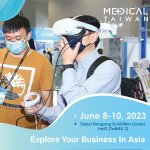
Medical Taiwan 2023 (June 8-10) features a total of 250 exhibitors presenting their expertise in the fields of ‘Digital Leap,’ ‘Supply Chain,’ ‘Innovation Force,’ ‘People-centric Future,’ and ‘All Age Healthcare.’
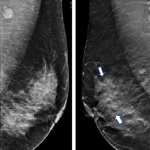
In a study of over a million women, digital breast tomosynthesis (DBT) showed improved breast cancer screening outcomes over screening with standard digital mammography alone.

Interactive mobile apps have become ubiquitous in daily life. The Covid-19 pandemic has escalated the use of disease-specific monitoring apps. Mobile apps enabling cancer patients to self-manage their physical condition and symptoms can help them to evaluate toxic side effects of their treatments, offer artificial intelligence (AI)-generated recommendations to minimize them, and alert them to…

Medical Taiwan is set to bring together leading manufacturers, suppliers, importers and experts from around the world to showcase the latest innovations, technologies, and products in the field.

The future of medical imaging will be shaped by AI, according to an expert panel hosted by Bayer at ECR in Vienna. Participants explored key trends in radiology and how AI innovation can help patients and their treating physicians.

A pioneering new method to assess the quality of organs for donation has the potential to revolutionise the transplant system, saving lives and tens of millions of pounds.
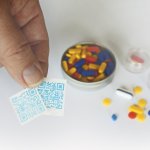
60 percent of all administered drugs do not have the desired therapeutic effect. Even worse: in Germany alone about 60,000 deaths per year are caused by medication. With these shocking statistics Professor Dr Christian Franken started his presentation on “Pills from the 3D printer” at last year’s Medica in Düsseldorf. He hopes that his vision of personalized medication based on 2D and 3D…

True or false: Webcams have only recently been introduced in neonatology and are a patient-side component of the Digital Health Portfolio. False! Already in 1989, Professor Dr Roland Wauer at Charité Berlin built his DIY system to transmit images from the neonatology ward.

US researchers are developing a highly accurate machine learning model for early detection of mild cognitive impairment and dementia in older drivers.
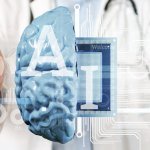
After 25 years of AI health tech research, computers are slowly beginning to listen to patients. This is the conclusion of a review of a quarter of a century's worth of studies on the topic.

January 28 saw the celebration of the “Data Protection Day” as it is called in Europe, or respectively the “Privacy Day” as it is referred to outside of Europe. It marks the date on which the Council of Europe’s data protection convention, known as “Convention 108” was opened for signature back in 1981. According to the Council of Europe, it is the ‘only international,…

At the ECR 2023 congress in Vienna, Austria, Fujifilm Europe will unveil new products, host an MRI symposium, and provide opportunities to meet the company's experts.
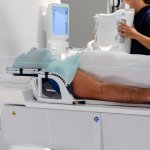
Philips is an active participant in the new European Federation for Cancer Images consortium (EUCAIM) – a project launched in the run-up to World Cancer Day 2023.

Compared to other common supplemental screening methods, breast MRI was superior at detecting breast cancer in women with dense breasts, according to a new study.

Medical imaging company Carestream Health has expanded its portfolio with 20 new patents for global advances in AI, image quality, digital radiography (DR) detectors and mobile imaging.

Healthcare Automation and Digitalization Congress 2023 is held on September, 25-26, 2023, in Zurich, Switzerland. Automa+ 2023 gathers leaders and digital experts from hospitals, healthcare providers and pharmaceutical companies with the main aim to drive the healthcare industry towards successful digital transformation.

The Netherlands Cancer Institute (NKI) will deploy a diagnostic platform from digital and computational pathology solutions provider Proscia, the company announced.

Bayer announced the acquisition of Blackford Analysis Ltd., a global strategic imaging platform and solutions provider for artificial intelligence (AI) in radiology.

A new study is among the first to survey the current landscape of FHIR apps, providing a snapshot of how the standard is used to enable the flow of health information.

Time for modernisation: The current model for randomised clinical trials must be redesigned for the 21st century, according to leading European and American cardiology societies.

New research shows the power of artificial intelligence (AI) applied to endometrial carcinoma microscopy images. This could improve diagnosis and treatment of uterine cancer.
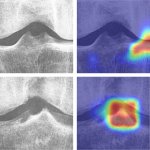
Researchers from the University of Jyväskylä and the Central Finland Health Care District have developed an AI based neural network to detect an early knee osteoarthritis from x-ray images.

The General Data Protection Regulation (GDPR), which came into force in 2018, has reinforced the European Union’s (EU) reputation of being comparatively strict regarding the protection of personal data within its member states. While the GDPR is generally considered a success, setting standards even outside its jurisdiction, critical voices are becoming louder.

At the annual RSNA meeting in Chicago, Carestream launched a new series of digital X-ray detectors to help improve clinical outcomes, as well as enhancements to its existing product portfolio.
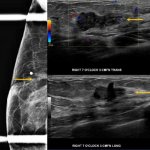
The need for breast cancer screening of transgender individuals has been a topic of uncertainty until recently, due to lack of reliable patient data, consensus by radiologists, published research, and recommended guidelines. A 2021 survey of Society of Breast Imaging (SBI) members revealed that ‘breast radiologists differ in their practice and knowledge regarding screening of transgender…

This summer, The European Commission launched I3lung, a new research initiative as a part of Horizon Europe, the EU’s research and innovation program. This research initiative aims to create a cutting-edge, decision-making tool to help clinicians and patients select the best lung cancer treatment based on each patient’s specific needs and circumstances.

With an estimated one million cancer diagnoses missed across Europe in the last two years, the impact of the Covid-19 pandemic is predicted to set back European cancer outcomes by almost a decade.

New changes made to the timetable for the In vitro Diagnostic Medical Device Regulation (IVDR) across Europe could have a significant impact on manufacturers and users, an expert points out. While the extension of the transition period was a welcome step, other changes which were hoped for remain painfully absent.

Innovative smart weighing scales are adding a new dimension to home monitoring for healthcare. By collecting data via sensors and proprietary technology as people stand on them, the scales can assess health metrics to give users more precise measurements for a deeper understanding of their body.

A smart-ring medical device is emerging as an effective and discreet wearable for round-the-clock blood pressure monitoring. Using photoplethysmography (PPG) signals to measure the bloodstream 24/7 through the wearer’s finger, a new feature of the “Cart-I plus” ring from manufacturer Sky Labs enables it to constantly monitor hypertension without user intervention.

Increasing accessibility of remote and home monitoring for patients with pulmonary diseases can help improve treatment and rehabilitation adherence, and support health systems and hospitals in tackling waiting lists. The various advantages of remote monitoring systems will be highlighted in a Medica session focusing on “Preventing chronic diseases with diagnostics and analytics”.

With the rise of syndrome-style infections, co-infections and the current antimicrobial resistance challenges, the need for multiplexed diagnostics is now more important than ever.

Patients affected by ovarian cancer can turn to "Olivia": The interactive digital resource provides information about diagnostics, treatment and life with ovarian cancer.

Deaths from cancer are currently estimated at 10 million each year worldwide. Conventional cancer staging systems aim to categorize patients into different groups with distinct outcomes. ‘However, even within a specific stage, there is often substantial variation in patient outcomes,’ Markus Plass, academic researcher from the Medical University of Graz, Austria, explained to Healthcare in…

At this year's Medica (Nov 14-17), the Health IT Forum offers a special focus on how health IT can contribute to more sustainability in healthcare, and on optimising treatment workflows.

Driving the healthcare industry towards digital transformation was the main direction of Automa+ 2022. The Congress gathered leaders from hospitals and healthcare providers, pharmaceutical companies, governmental bodies and institutions as well as medical device manufacturers, service providers and start-ups in Zurich, Switzerland on September, 26-27, 2022.
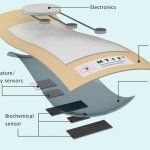
Researchers at Nottingham Trent University and Nottingham University Hospitals NHS Trust have developed a new biosensor capable of accurately monitoring the condition of a chronic wound.
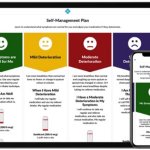
Artificial intelligence (AI) can be used to detect COVID-19 infection in people’s voices by means of a mobile phone app, according to research to be presented at the European Respiratory Society International Congress.

Swiss researchers have demonstrated how sensors could help detect health problems in the elderly at an early stage. This could help seniors to live a self-determined life at home for longer.
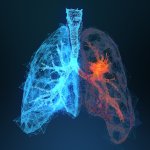
UK researchers developed and validated a deep learning algorithm that can identify and outline a non-small cell lung cancer (NSCLC) tumor on a CT scan within seconds.
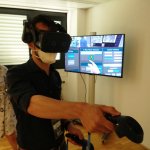
Exposure to ionising radiation is a major health concern for many interventional radiologists. To help attain an understanding for radiation distribution in a clinical setting, experts tap into the potential of virtual reality (VR).
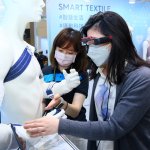
Holding its ground during the challenges of the pandemic, Health and Care Expo Medical Taiwan 2022 saw a 13% increase in visitors compared with last year, the organizers report.
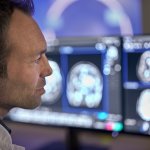
The portfolio Philips presented at ECR 2022 revealed that the company not only advanced their products, but also listened to medical professionals and patients – and took their feedback to heart.

Patients are 20% less likely to die of sepsis because a new AI system developed at Johns Hopkins University catches symptoms hours earlier than traditional methods, an extensive hospital study shows.

Dark-field radiography uses a part of X-rays that has hardly been considered so far to expand the spectrum of diagnostic imaging. At the ECR Overture, Theresa Urban presented the new method.

MIT researchers produced textiles that sense the wearer’s posture and motions. Their “smart” shoes and mats could be used in applications ranging from health care to prosthetics.

New research suggests that providing a break in treatment to patients with advanced bowel cancer could not only benefit a patient’s quality of life but could also help reduce costs.

Automa + Healthcare is held in September, and gathers leaders from hospitals & healthcare providers, governmental bodies and institutions with the goal to contribute to further development of ongoing digital health trends.

Blockchain is a digital technology that allows a secure and decentralized record of transactions. Now, researchers leveraged blockchain to give individuals control of their own genomes.

Russia's war against Ukraine is also playing out in cyberspace. In the process, clinics in Germany could also be caught in the digital crossfire, IT experts warn.

An artificial intelligence (AI) model combining four methods of machine learning (ML) to accurately detect thyroid cancer from routine ultrasound image data has been developed by US researchers.
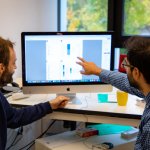
A new AI platform can analyze genomic data extremely quickly, picking out key patterns to classify different types of colorectal tumors and improve the drug discovery process.

Scientists have created a design and fabrication tool for soft pneumatic actuators for integrated sensing, which can power personalized health care.

Researchers have developed advanced computer models, or “digital twins”, of diseases, with the goal of improving diagnosis and treatment.

Reaching out across 15 hospitals and a population of six million people, a network established by the National Pathology Imaging Co-operative (NPIC) is an ambitious move to advance digital pathology in the North of England.

Mental disorders are among the leading causes of ill-health and disability worldwide, and the demand for a viable solution to battle the mental health crisis has risen. The past two decades have witnessed the emergence of extended reality (XR) as a tool for investigation, assessment, and management in mental healthcare.

During a webinar, health experts and clinicians highlighted the need for urgent changes to lung cancer services across Europe to create a more cohesive and equal approach to care.

Sleep problems could hint at a heightened risk of heart disease, caution experts at the ESC Preventive Cardiology 2022 congress.

To provide a solution for the challenges of the coronavirus pandemic, Beckman Coulter recently launched the DxU Iris, a urinalysis solution which aims to improve lab workflows.

Hospitals that boost nursing staff engagement also find they improve the retention rate for senior doctors, according to a new study from the University of Surrey.

Groundbreaking technologies have improved our ability to accurately diagnose breast cancer and reduce callbacks, focusing on compassionate care for patients as they move along their breast health journey.
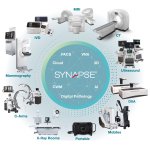
Fujifilm aims to become an entity that can contribute to the advancement of human health by supporting the ongoing transformation in the healthcare industry – as a “One-Stop” solution partner.

Cardiac rehabilitation can be done just as well at home as in the hospital. This is the conclusion of the most extensive research into ‘tele-rehabilitation’ to date.

NFTs, or nonfungible tokens, first made a splash in the art world as a platform to buy and sell digital art backed by a digital contract. But could NFT be useful in other markets such as healthcare?

E-mental health services could provide a response to these challenges and offer effective ways for prevention, diagnosis, treatment, and aftercare.

Does artificial intelligence (AI) need more diversity? This aspect is brought up by experts in the context of AI systems to diagnose skin cancer. Their concern: images used to train such programs do not include data on a wide range of skin colours, leading to inferior results when diagnosing non-white patients.

Every day, elderly people fall – be it at home or in care facilities. Med-tech start-up Lindera developed an app that allows motion analysis via a smartphone camera to minimize the risk of falling.

Mark Nicholls reports from the National Cancer Research Institute (NCRI) virtual Festival, with four expert speakers discussing the role of liquid biopsy in cancer detection.
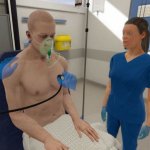
The number of gamified mobile applications is rising rapidly—especially in healthcare. Gamified apps or devices are used in many fields, from mental health therapy to stroke rehab to managing metabolic conditions. This article illustrates how gamification is employed in diabetes care.

A new pilot study suggests that machine learning algorithms which fuse electrocardiogram (ECG) and electronic health record data may help doctors screen for dangerous, lung-clogging blot clots.

Researchers in the UK and China have developed an AI model that can diagnose Covid-19 as well as a panel of professional radiologists, while preserving the privacy of patient data.
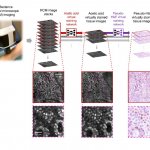
A 'new technology shows promise by analyzing images of suspicious-looking lesions and quickly producing a detailed, microscopic image of the skin, bypassing several standard steps typically used for diagnosis - including skin biopsy, tissue fixation, processing, sectioning and histochemical staining.

After the four-day run, organisers of Medica and Compamed express their satisfaction with the results of the events in Düsseldorf. From 15 to 18 November 2021, the world’s leading information and communication platforms for the medical technology industry and its supplier sector presented a wealth of convincing innovations as well as an accompanying programme that covered a wide range of…
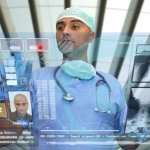
How will digital technology impact healthcare in 2030? If challenges to acceptance and utilisation can be overcome, healthcare providers and patients will benefit significantly, according to physicians participating in a recent online seminar on this topic.

This year as every year, the very best in global HealthTech will be converging on Dusseldorf for the Medica trade fair. With more than 127 companies attending the event from November 15-18, France will have one of the largest contingents there. Grouped together under the brand umbrella of “French Healthcare”, the French MedTech companies will be presenting their many innovations to industry…
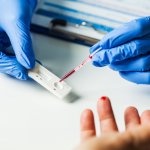
Considerable advances in point-of-care testing (POCT) devices are emerging from lab-on-a-chip platforms, innovations in smartphone-based technology and wearable technology. Cloud-based deep learning systems herald a future revolution.

This September, the symposium 5G4Healthcare, organised by the Technical University of Applied Sciences (Ostbayerische Technische Hochschule - OTH) Amberg-Weiden, Germany, explored how 5G can contribute to greater efficiency in healthcare. The event was based on the insights from the 5G4Healthcare project at OTH. Launched in 2020, it is one of six research projects in the 5G innovation programme…

"Virtual Care & Digital Therapeutics", "Medical Artificial Intelligence & Robotics", "Fields of Innovation" and "Societal aspects of digitized healthcare" are the topics of this year's Health IT Forum at Medica. New this year: In line with the hybrid event concept of the trade fair, the Expert Panels, Tech Talks and Deep Dive Sessions can be…

Medica trade fair (November 15-18) is once again a welcome field for many healthcare start-ups to present their products. The joint stand at the 'Medica Start-up Park' in Hall 12 has become the central cross-national meeting point for the healthcare start-up scene, the fair's organizers are pleased to report. "We bring innovators and investors together. This time, more than 40 start-ups are…
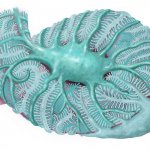
Researchers have leveraged the power of digital pathology and computational modeling to detect and quantify podocytes, a specialized type of cell in the kidney that undergoes damaging changes during early-stage kidney disease.

With interoperability stalled, stakeholders are seeking new ways to create an interoperable ecosystem. IT specialist Jason Steen describes the state of interoperability in Australia and calls for more governmental commitment and international standards.

A research team led by Professor Lim Chwee Teck from the National University of Singapore’s (NUS) Department of Biomedical Engineering and Institute for Health Innovation & Technology (iHealthtech), in collaboration with clinical partners from Singapore General Hospital, has developed a smart wearable sensor that can conduct real-time, point-of-care assessment of chronic wounds wirelessly…

Under the motto "new tech, smart future", the latest edition of the Chinese Medical Equipment Fair (CMEF) showcased technological innovations at the Shenzhen World Exhibition & Convention Center. The 4-day event, which covered critical technology advances in AI, deep learning, big data, 5G and much more, also served to display the technological and economic growth in China, with…
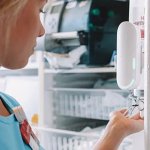
Water, hygiene and infection prevention solutions and services provider Ecolab launches its Hand Hygiene Compliance Measurement (HHCM) System, a digitally connected technology to systematically monitor and improve hand hygiene in healthcare settings, across Europe. In healthcare settings, clean hands save lives. While the Covid-19 outbreak increased adoption of hand hygiene measures at first,…

The FDA authorized marketing of software to assist medical professionals who examine body tissues in the detection of areas that are suspicious for cancer as an adjunct to the review of digitally-scanned slide images from prostate biopsies.
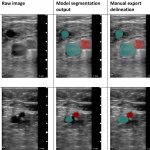
A team of researchers are developing the use of an artificial intelligence (AI) algorithm with the aim of diagnosing deep vein thrombosis (DVT) more quickly and as effectively as traditional radiologist-interpreted diagnostic scans, potentially cutting down long patient waiting lists and avoiding patients unnecessarily receiving drugs to treat DVT when they don’t have it.
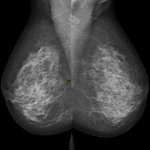
For World Patient Safety Day, Health First Europe (HFE) published a comprehensive insight report on five disease areas that affect millions of European citizens each year and how the European Union could and should do a better job for its citizens.

The role of Artificial Intelligence (AI) is one of the most divisive issues in cardiology. Two leading experts argue the pros and cons of its use, exploring its benefits and advantages to cardiac care, as well as highlighting the pitfalls and shortcomings of AI, while underlining the need for clear guidelines and regulations for its use going forward.

MedTech Europe, the European trade association for the medical technology industry including diagnostics, medical devices and digital health, ran an industry survey, which shows an urgent, high risk to the availability of IVD medical tests once the new IVD Regulation fully applies.

Although artificial intelligence (AI) tools and smartphone apps that help identify suspicious moles and potential skin cancers are starting to proliferate, dermatology informatics has far to go before becoming a clinically adoptable technology. Many challenges need to be resolved, not least of which is the need for more image data representing people of colour.

Patient-oriented innovations and cases of the processes digitalization are presented at the Healthcare Automation and Digitalization Congress 2021 (AUTOMA+ Healthcare Edition 2021). The Congress takes place online, at BGS Online Platform on September, 27-28, 2021, and gathers hospitals, healthcare providers, and pharmaceutical companies to network and share solutions regarding the personalized…